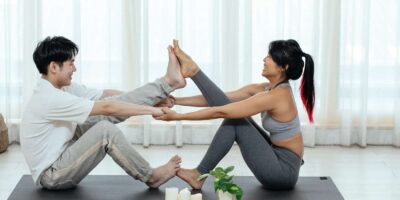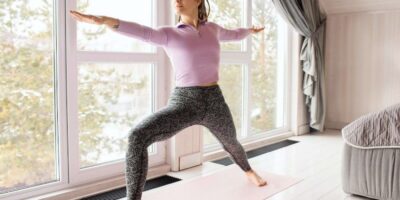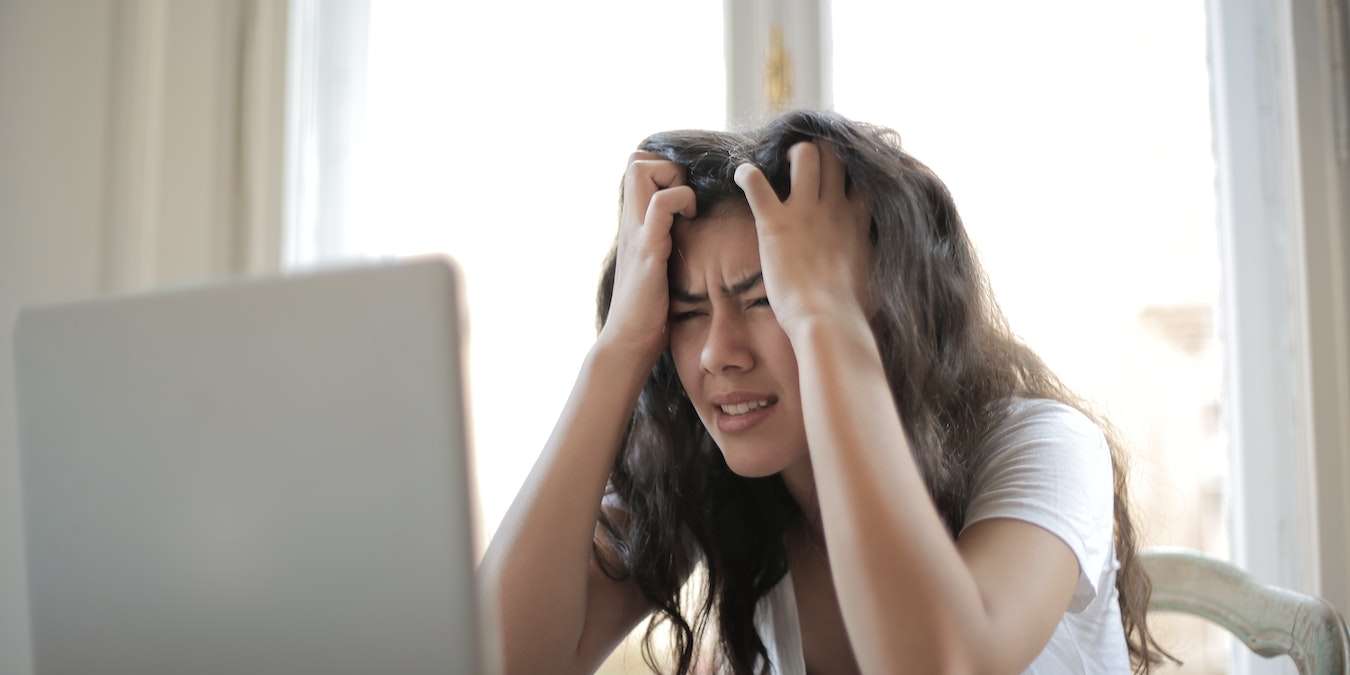
Nearly one-third of the population lives with anxiety daily. Unfortunately, once your anxiety levels rise, it can be hard to tone them down. If your anxiety levels often interfere with your life, try incorporating these ten practical tips and tricks into your daily routine to help manage and reduce anxiety levels.
1. Establish a Soothing Bedtime Routine
Without proper rest, our brains cannot properly regulate our emotions. Managing anxiety is much more difficult when you are sleep-deprived. Over time, this can become a rampant cycle where your anxiety interferes with your sleep and the lack of sleep fuels your anxiety, so you want to do everything you can to ensure restful sleep each night.
Establishing a consistent bedtime routine can signal your body that it’s time to sleep. It can also help you stay asleep throughout the night so that you wake up feeling refreshed and ready to tackle the day. This will help you better manage stressful situations and avoid rumination, both of which will naturally lower your anxiety levels.
2. Practice Paced Breathing Exercises
Paced breathing exercises can profoundly impact anxiety levels in the moment. These exercises involve slow breathing patterns that activate the body’s relaxation response. Focusing on your breath and regulating its pace can promote a sense of calm and decrease both your physical and emotional anxiety symptoms.
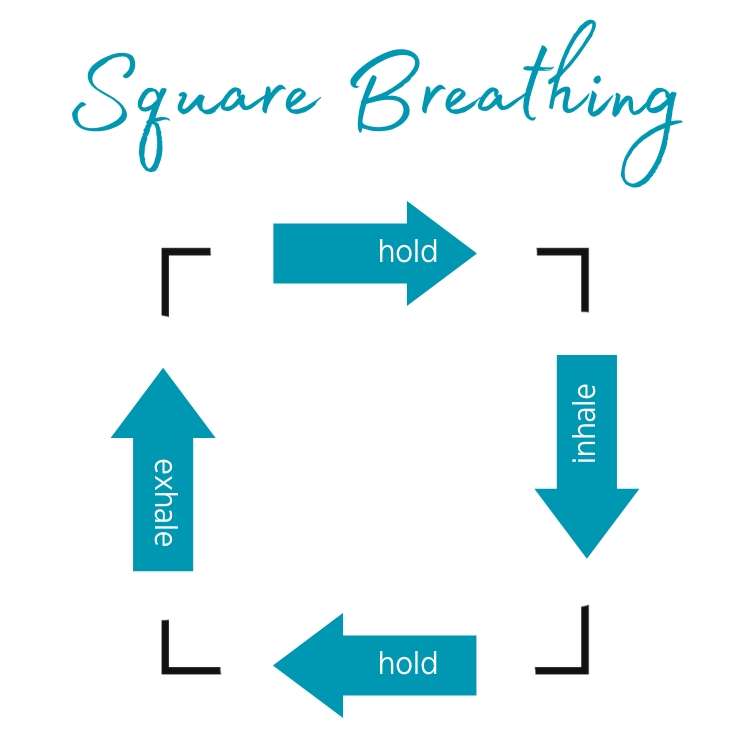
One paced breathing exercise that works well is square breathing or box breathing. To perform this exercise, imagine a square in your mind. Then, you will use your breath to “make the square” by breathing in for four counts, holding for four counts, breathing out for four counts, and holding for four counts. You can repeat the square as many times as needed until you feel your body relax and your anxiety levels lower.
3. Nourish Your Body with Proper Nutrition
Maintaining a balanced diet can positively impact both your physical and mental health. Therefore, nourishing your body can also serve as a way to naturally lower anxiety levels.
Some nutrition suggestions for people who experience anxiety include:
- Avoiding excessive sugar and processed foods
- Consuming nutrient-dense foods such as fruits, vegetables, whole grains, and lean proteins
- Eating foods rich in omega-3 fatty acids, which have been linked to reducing anxiety
- Following a consistent meal schedule that includes three meals and at least two snacks
- Drinking plenty of water throughout the day
4. Utilize Progressive Muscle Relaxation (PMR)
Progressive Muscle Relaxation is a technique that involves systematically tensing and then releasing different muscle groups to induce physical relaxation. By bringing awareness to the sensations in your body and consciously releasing the tension in various parts of your body, you can help reduce muscle stiffness and promote overall relaxation, which can ease anxiety.
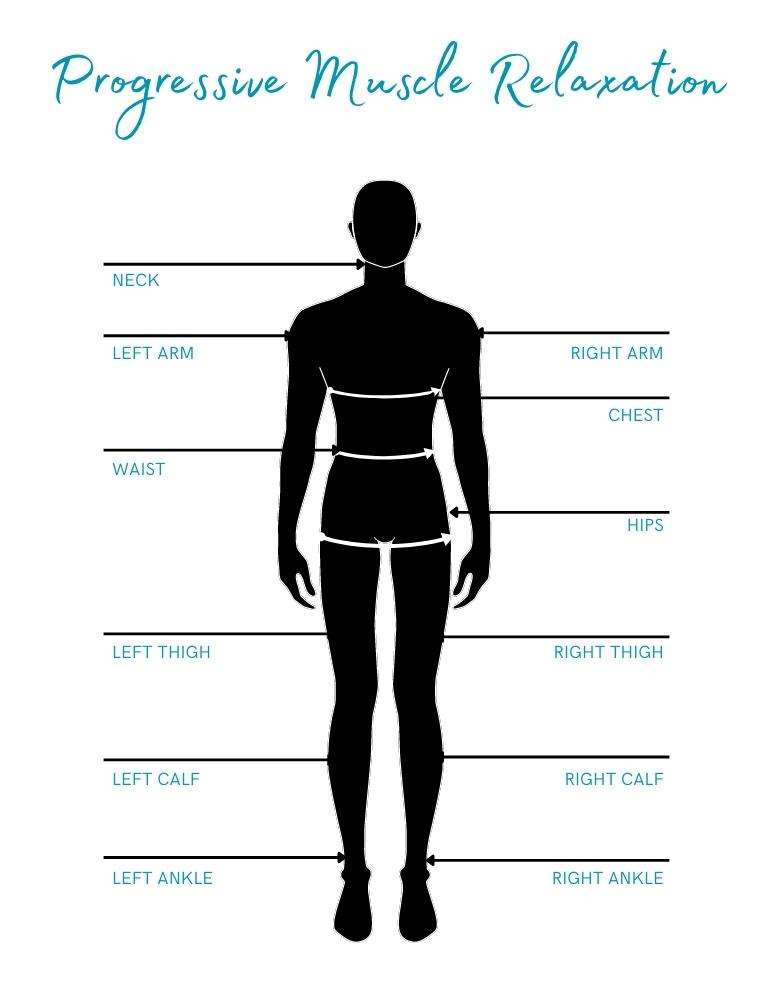
5. Reduce Caffeine Consumption
Caffeine is a stimulant that can increase heart rate, trigger jitters, and exacerbate anxiety symptoms. The less caffeine you drink, the lower your anxiety levels. Instead of drinking coffee, energy drinks, and soda, try water, 100% juice, herbal teas, and other non-caffeinated alternatives.
6. Practice the 5-4-3-2-1 Grounding Technique
Grounding techniques are exercises people can use to manage intense emotions, including anxiety. These simple activities are particularly helpful immediately before, during, or after anxiety attacks because they can help you recenter yourself and reduce your fear and panic.
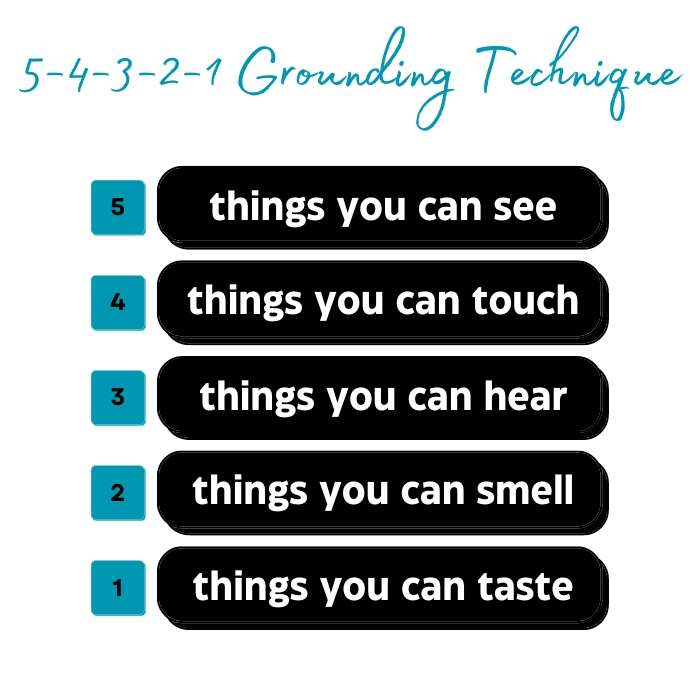
The 5-4-3-2-1 grounding technique is a simple yet powerful grounding technique that anchors you back in the present moment to alleviate your anxiety. To use this exercise, you simply identify and mentally acknowledge five things you can see, four things you can touch, three things you can hear, two things you can smell, and one thing you can taste. Refocusing your attention on things present around you helps shift your brain away from anxious thoughts and grounds you in your immediate environment.
7. Incorporate Regular Exercise
Regular physical activity has been shown to reduce anxiety and improve overall mood. Find a form of exercise you enjoy, whether walking, jogging, swimming, dancing, or practicing yoga. Aim for at least 30 minutes of moderate activity most days of the week to reap the benefits of stress reduction and increased endorphin release. If you aren’t sure where to start with your daily physical activity, you can try some basic home exercises that don’t require equipment.
8. Label Your Emotions
When anxiety arises, labeling and acknowledging your emotions can be helpful. Take a moment to identify and name the feelings you are experiencing. This practice of emotional labeling can help create distance from overwhelming thoughts and feelings, allowing you to respond to them more effectively and with greater self-compassion. It can also help you identify potential underlying causes for what you think is anxiety.
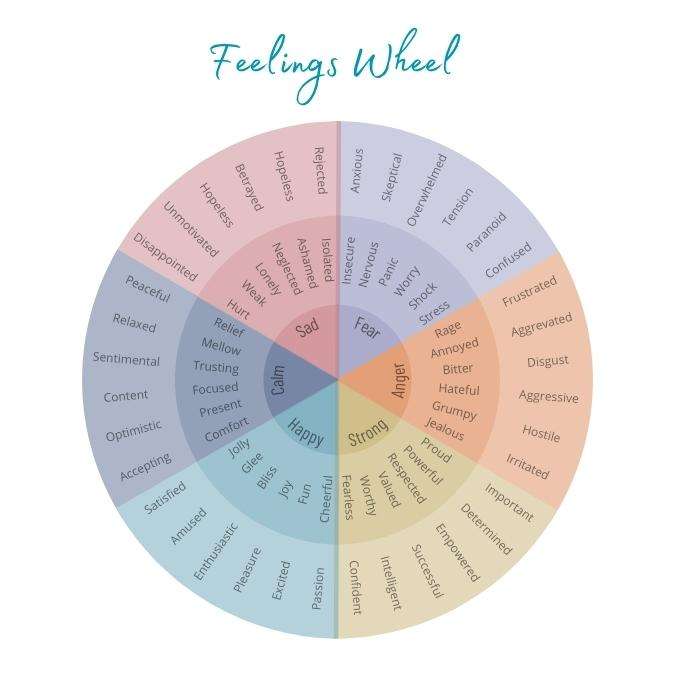
9. Activate the Diver’s Reflex
The Diver’s Reflex, or the Mammalian Dive Reflex, is a natural response that triggers the body’s relaxation mode. By immersing your face in cold water or applying a cold compress, you can stimulate this reflex and help reduce anxiety symptoms. Take slow, deep breaths while practicing this technique for enhanced relaxation.
Frequently Asked Questions
Can I cure my anxiety?
While a complete “cure” may not be realistic for everyone, learning effective coping mechanisms, managing triggers, and seeking support can reduce anxiety symptoms and improve quality of life.
When should I seek professional help for my anxiety?
You should seek professional help for anxiety if it significantly interferes with your daily life, relationships, and work performance or if you experience frequent panic attacks. A mental health professional, such as a therapist or counselor, can provide guidance, support, and evidence-based treatments tailored to your needs.
Image credit: Pexels


